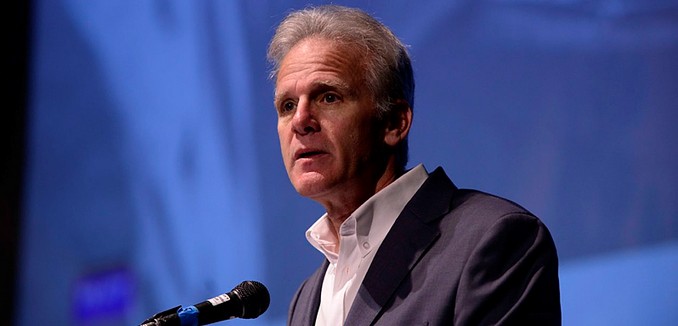The passage of a United Nations Security Council resolution last week denouncing Israeli presence beyond the 1949 armistice lines will make Middle East peace “ever more remote,” former Israeli Ambassador to the United States Michael Oren wrote Wednesday in Newsweek.
Oren, currently a member of Knesset and deputy minister for Israeli diplomacy, observed that the resolution caused “unprecedented” damage and poses “clear” dangers to Israel.
“The resolution means the Western Wall and other places sacred to Jews for 3,000 years are considered as illegally occupied,” Oren noted. It labels some 600,000 Israelis living in areas captured by Israel during a defensive war in 1967 as “flagrant violators of international law,” opening Israel to the risk of prosecution by the International Criminal Court and bolstering boycott efforts.
However, the resolution also presents risks for the Palestinians, the wider Middle East, and American credibility, Oren argued.
Over the past eight years Israeli Prime Minister Benjamin Netanyahu has offered to discuss peace with the Palestinians without preconditions. “But if America and the U.N. are already ganging up on Israel, what incentive will the Palestinians have to negotiate?” Oren asked. “Rather, they will continue to follow Abbas’s plan to avoid talks while delegitimizing Israel in world forums,” and therefore “remain stateless.”
Given that a “strong Israel is virtually all that stands between the Sunni Arab states and the radical jihadists in Iran and ISIS,” Oren wrote, “the Security Council vote will undoubtedly reinforce those radicals and embolden them to mount further attacks not only against the Jewish State but also against its Arab neighbors.” Moreover, the resolution sends an “unequivocal message” from the UN to the peoples of the Middle East: “the massacre of more than half a million Arabs in Syria, Iraq, and Yemen is unimportant. All that matters is Jews living and praying in their homeland.”
The resolution, which passed on account of an abstention by the Obama administration, also hurts American credibility. The failure to the block the resolution reverses “longstanding U.S. policy that rejected any alternative—especially from the U.N.—to direct negotiations between Israel and the Palestinians,” Oren observed. This, in turn, casts serious doubts on American security commitments to its allies. “By abstaining from voting on the resolution, in effect abandoning its only democratic Middle Eastern ally, the U.S. has called into question its dependability to its other friends,” Oren noted.
“The U.N., which never condemned the Arab states that occupied the West Bank and Gaza before 1967, never denounced the exclusion of Jews from their holiest sites in Jerusalem for 19 years before that, and overlooked Palestinian incitement to terror, has once again shown the vastness of its hypocrisy,” Oren added. Because of this, “Israel will once again have to defend itself, the Palestinians will refuse to talk, and peace will be ever more remote. The future of the Middle East will become more hopeless yet and America’s vital friendships around the world will be weakened.”
Oren called on the international community to help repair the damage caused by the resolution by assuring Israelis that they have rights to “their ancestral home,” and need not fear prosecution by international bodies. Palestinians in turn should be discouraged from “trying to end-run the peace process” and compelled to return to the negotiating table without preconditions.
“All of this will require bold American leadership,” Oren concluded. “In 1975, the same U.N. equated Zionism—the national liberation movement of the Jewish people—with racism. Sixteen years later, thanks to the efforts of President George H.W. Bush, that pernicious resolution was revoked. History teaches us that such injustices can be corrected and that, with courage, the worst of the U.N.’s outrages can be rectified.”
[Photo: Flash90 ]




